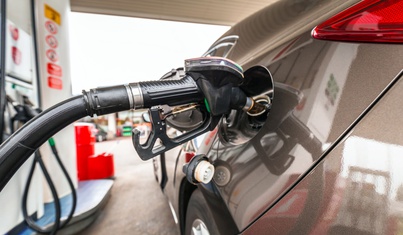Where an employee with a company car is provided with fuel for their own private use by their employers, the default position is that the employee is required to pay the car fuel benefit charge. The charge is determined by reference to the CO2 rating of the car, applied to a fixed amount, currently £27,800. For example, a CO2 rating of 150g/km would create a taxable benefit of £9,730.
The car fuel benefit charge is not applicable when the employee pays for all their private fuel, this includes commuting to and from work. Employees should keep a log of private mileage, which they can then apply to the published advisory fuel rates to repay the cost of fuel used for private travel. In this case, HMRC will accept that there is no car fuel benefit charge, and the employee will save the Income Tax charge on the private car fuel. It will usually be much cheaper to repay your employer for private fuel rather than pay the Income Tax charge, especially if private mileage is relatively low.
The advisory fuel rates are intended to reflect actual average fuel costs and are updated quarterly. However, the use of the advisory fuel rates is not binding if the employer can demonstrate that employees cover the full cost of private fuel by repaying at a lower rate per mile. There is also a lower advisory rate if the company car is fully electric.



